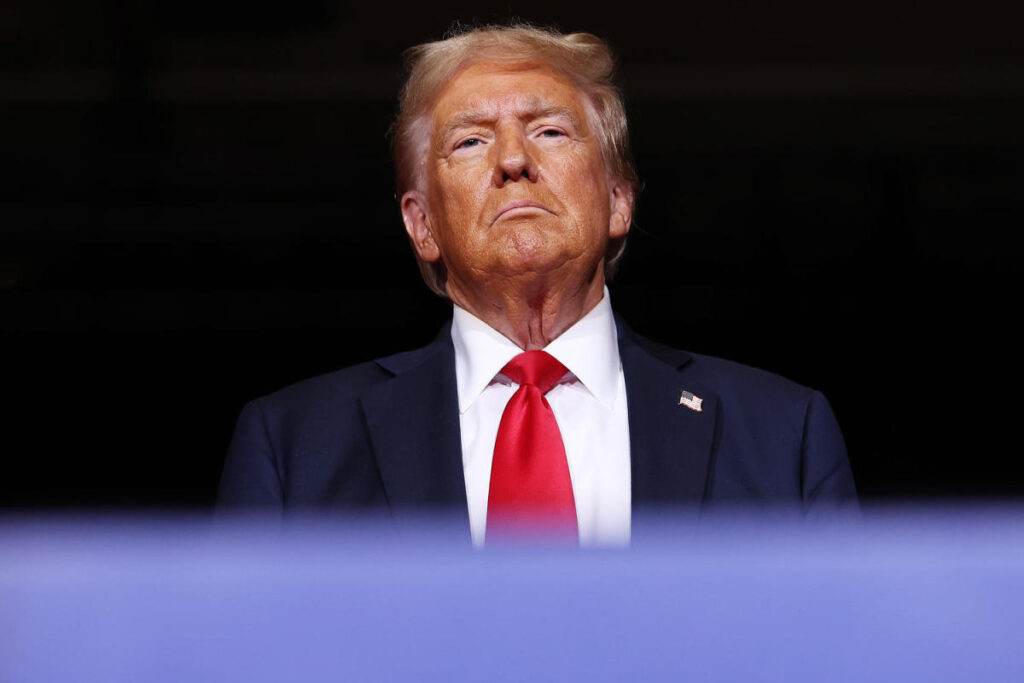In a recent interview on Fox News, former President Donald Trump characterized Democrats and those investigating him as a significant threat to the United States, dubbing them “the enemy from within.” He expressed that this internal opposition is more perilous than external adversaries such as Russia and China. Trump named specific individuals, particularly Democrat Adam Schiff, whom he accused of being a prime example of this internal danger. During the interview with host Maria Bartiromo, Trump articulated his belief that while outside enemies could be managed, the internal threats posed by political opponents were much harder to combat.
Trump’s comments came as he campaigned for the 2024 presidential election, where he has intensified his rhetoric against those who oppose him. He has begun labeling opponents, including figures like Vice President Kamala Harris, as criminals and implying that critiques of his policies are illegal. This line of attack mirrors tactics he employed in past campaigns, aiming to delegitimize his adversaries and consolidate support among his base. According to Trump, “smart presidents” can handle foreign threats efficiently, but it is the internal challenges that present a far more complicated problem.
This interview resonated with remarks Trump made during a recent rally in Coachella, California, where he referred to Schiff repeatedly as “shifty” and reinforced his portrayal of the congressman as a significant internal adversary. Trump accused Schiff of orchestrating what he termed the “Russia hoax,” claiming Schiff’s actions were damaging to the nation. In response, Schiff dismissed Trump’s comments, labeling them as nonsensical and maintaining a dismissive stance towards Trump’s fixation on him, suggesting that Trump is insecure and obsessed.
Trump’s longstanding antagonism toward Schiff stems from their history during the impeachment proceedings in 2019, where Schiff served as a lead prosecutor against Trump. Trump has consistently condemned Schiff, asserting that he misrepresented the findings of special counsel Robert Mueller’s investigation into the Trump campaign’s ties with Russia. Despite Mueller’s report concluding there was no explicit collusion, Trump continues to frame Schiff’s actions as harmful and politically motivated, insisting this narrative began as an explanation for Hillary Clinton’s electoral loss in 2016.
As the 2024 election approaches, Trump has sought to downplay concerns regarding potential unrest, despite invoking the idea that he could face challenges similar to those witnessed during the chaotic events of 2020. He suggested that any unrest would not stem from his supporters but rather from individuals he categorizes as “radical left lunatics.” Trump’s approach proposes the possibility of an authoritative response if necessary, invoking the National Guard or military assistance, while referencing the Capitol riots of January 6. Notably, Trump’s reluctance to initially deploy the National Guard on that day has been a point of contention and criticism.
In summary, Trump’s narrative establishes a dichotomy between internal and external threats, framing his political opponents as greater risks to the nation than foreign adversaries. This strategy not only consolidates his support but also deflects accountability for any unrest that may arise during the upcoming election season. His continued focus on figures like Adam Schiff reflects a broader tactic designed to unify his base around a common adversary, painting a picture of a political landscape fraught with danger from supposed entrenched enemies within the government.

